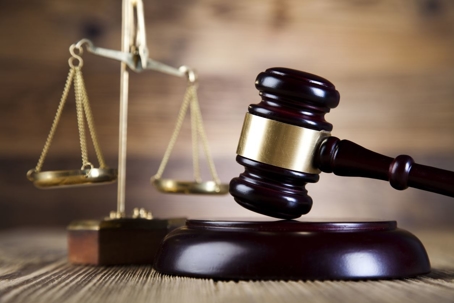Some litigants believe that the judge assigned to their case will be making the decision about all of the issues in their case. This is not correct and certainly, not the ideal method for a family law case to be resolved. The parties should be able to work together to solve all of the decisions in their case and if they ultimately cannot reach an agreement, then the parties work together to present issues to the family court judge to make decisions.
Is it a good idea to leave decisions to the family court judge?
In short answer, no. It is a last resort. Judges generally accept and approve parties’ mutual agreements. It is extremely rare that a family court vetoes an agreement the parties have reached and memorialized in a formal settlement agreement. The couple of times that an agreement has been rejected by the judge that we have witnessed is when the parties try to agree to something that is directly contradictory to the law. Judges are also required to consider the best interests of the children involved. Judges also have the ability to question and obtain information about whether each party entered into the agreement voluntarily, knowingly and intelligently.
Family law litigants need to understand that different judges, who have wide discretion in family law cases, may make different rulings on the same set of facts. We will often hear from clients that their friend or neighbor or work colleague went through a family law situation with certain facts and the judge made certain rulings and therefore, they would like the same ruling(s). it is helpful to understand that no matter how similar a situation may seem initially, often there are nuances that significantly distinguish one situation from another. As all humans have different perspectives, beliefs about raising children and other thoughts that affect their decision-making, similarly, judges have these same differing thoughts and beliefs.
What should you expect from the judge if you are required to have a contested hearing?
The judge will undertake the duty of characterizing property as either marital or non-marital, make determinations based on the statute for determining spousal support, if needed, and to listen to evidence about your children’s needs and best interests in making a parenting plan and child custody determination that serves their best interests. Presenting a trial to a judge is legally complex with a variety of different requirements through providing information/allegations in discovery documents, disclosing exhibits, witnesses, preparing legal arguments, outlines for testimony among many other steps.
It is crucial that you understand the judge’s function in a trial. The judge is not there as a therapist to provide emotional support or give you an opportunity to “feel better” by sharing information. Rather, the judge serves as a neutral arbiter, listening to information in a fair and impartial manner to make a fair and equitable determination. While judges will often support and encourage settlement as both, being best for the family and a better alternative to litigation, if requested, the judge involved will make a determination as to the contested/unagreed issues in your case. The judge’s duty is to make a decision that is not swayed by emotions or personal opinions. A judge is required to rely on the evidence presented including documents and witness testimony, as well as the legal arguments made. The requirement that factual, full disclosure be made requires meticulous preparation of your testimony and the exhibits that will be presented.
Building a Strong Case is Crucial to a Successful Outcome
Evidence maters to a family law judge. The family law judge’s decision often hinges on the evidence that you are presenting to him or her. Make sure you gather important documents, select credible, well-spoken witnesses, present a clear case about your position and arguments and be efficient with the information presented.
Courtrooms are serious and you must dress appropriate, speak respectfully and not allow emotions to overtake the information you are presenting. Finally, a great attorney will be knowledgeable about your particular judge, including their background, personality and legal philosophies so that the case can be presented in a way that will be successfully geared to the beliefs and thought process of the judge hearing your case.
If you are concerned about what to expect from your family law judge, the best thing you can do is hire a knowledgeable and experienced family law attorney to help you navigate the process. If you are looking for excellent legal advice and representation, please call Pingel Family Law today at (816) 208-8130 to schedule your consultation and we will look forward to meeting with you to develop a plan for your case.

